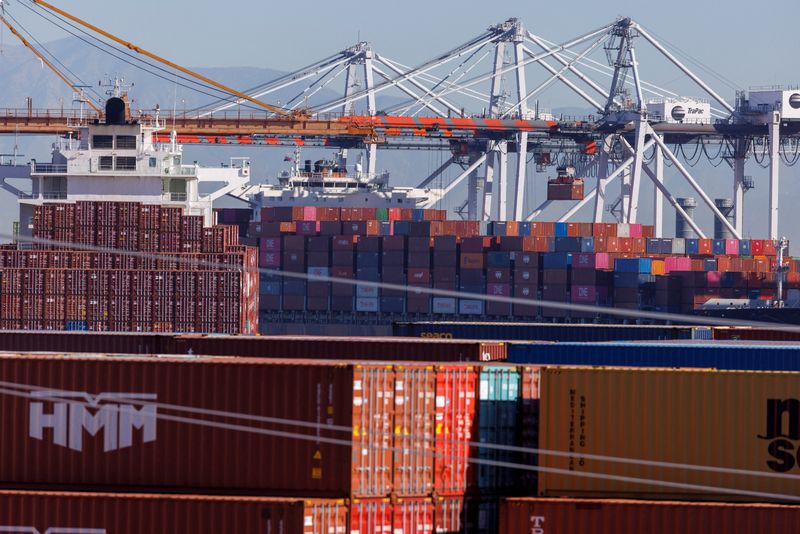By Lisa Baertlein and Priyamvada C
(Reuters) - This holiday season, U.S. retailers are importing like it is 2019.
After a spending spree on goods that began during early COVID-19 lockdowns in 2020, U.S. consumer patterns are normalizing. U.S. ocean container import growth over the first nine months of this year, which is dominated by retailers, was within 2.5% of the same period in 2019, Descartes (NASDAQ:DSGX) Systems Group said in a report on Tuesday.
The import results - viewed as a demand proxy for major retailers like Walmart (NYSE:WMT) and Target - are in line with data showing consumer spending has held up better than expected as prices for grocery staples like chicken soar, gas prices rise and more costly car loans and mortgages eat into disposable spending.
Deloitte forecast holiday sales growth of 3.5% to 4.6% for the November to January period this year, the slowest pace since 2018.
"The rate of (spending) growth we've seen the past couple of years has slowed and retailers are working to strike the right balance of supply and demand," said Jonathan Gold, vice president for supply chain for the National Retail Federation (NRF).
That balancing effort could help explain why September import volume was up 8% from 2019, the biggest divergence so far this year. Last month's volume was also up 0.3% from August, breaking a six-year trend of month-on-month declines "consistent with importers winding down shipment volumes for remainder of the year," Descartes said in its global shipping report.
Analysts said the September result could indicate retailers are importing based on signals from consumers rather than rushing in goods and backup supplies well before needed to avoid empty shelves, a strategy that backfired in mid-2022. Then, retailers were stuck with too much inventory after pandemic restrictions lifted and shoppers started shifting spending back to restaurants, travel and concerts.
Susquehanna analyst Bascome Majors analyzed about 20 years of data from Walmart, Target, Home Depot (NYSE:HD) and Lowe's (NYSE:LOW), and found the four highest-volume publicly traded importers of goods via ocean container ships in the U.S. were returning to "just-in-time" inventory strategies.

Target CEO Brian Cornell in August said the company had cleared a significant amount of unsold inventory from the unexpected demand shift and the retailer would "be ready when we see demand changing as we enter the holiday season."
Descartes Executive Vice President Chris Jones added: "The consumer seems to be pretty fickle these days."